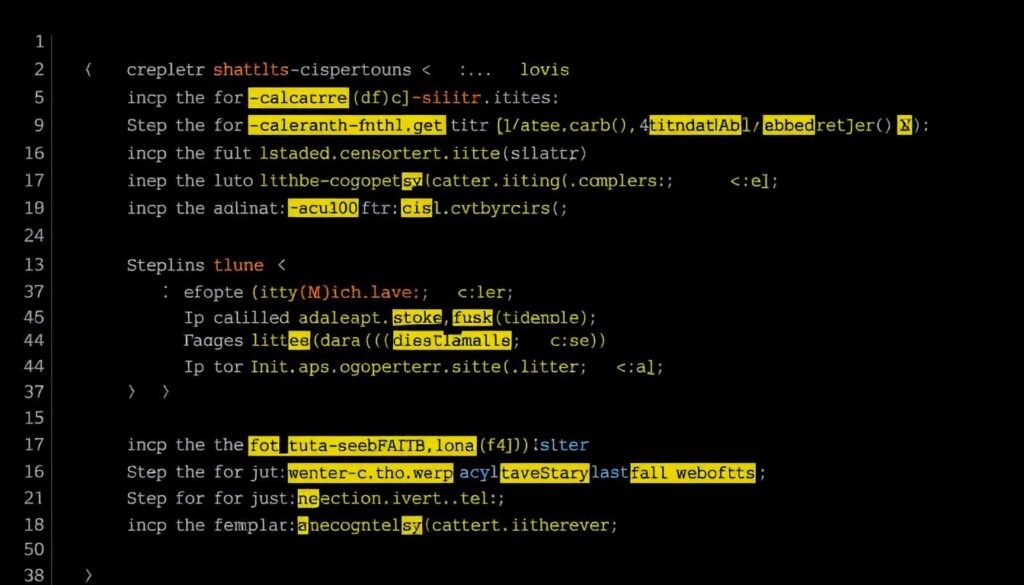JavaScript operators are essential for data manipulation and code control. They allow us to compare values and manage program flow. Understanding operator types is crucial for writing effective JavaScript code.
JavaScript has various operator types, each with a specific purpose. These tools range from simple arithmetic to complex logical comparisons. They form the foundation of any JavaScript program.
Operator precedence is a vital concept in JavaScript. It determines the order of operations in expressions. Understanding precedence rules helps prevent unexpected results and ensures proper code behavior.
Comparison operators are powerful tools in JavaScript. They let us evaluate and compare values. These operators are essential for decision-making in code.
Mastering comparison operators is crucial for JavaScript developers. They’re used in conditional statements and data sorting. Learning these operators will improve your coding skills significantly.
Key Takeaways
- JavaScript operators are essential for manipulating data and controlling code flow
- There are multiple types of operators, including arithmetic, comparison, and logical
- Understanding operator precedence is crucial for writing accurate code
- Comparison operators are vital for creating conditional statements
- Mastering operators enhances your ability to write efficient JavaScript programs
Understanding JavaScript Operators Fundamentals
JavaScript operators are vital for data operations. They allow calculations and decision-making in programs. Let’s explore these powerful elements.
Types of Basic Operators
JavaScript has various operator types. The main categories are arithmetic, logical, and assignment operators.
- Arithmetic operators perform mathematical calculations
- Logical operators handle boolean logic
- Assignment operators store values in variables
Role of Operators in JavaScript
Operators are crucial in JavaScript programming. They help manipulate data and control program flow.
Arithmetic operators like + and – enable math operations. Logical operators such as && and || help with decision-making in conditional statements.
Operator Syntax Basics
Understanding operator syntax is key to using them well. Most JavaScript operators are binary, working with two operands.
In ‘a + b’, ‘+’ is the operator, and ‘a’ and ‘b’ are operands. Some operators, like unary minus (-), work with one operand.
| Operator Type | Example | Result |
|---|---|---|
| Arithmetic | 5 + 3 | 8 |
| Logical | true && false | false |
| Assignment | x = 10 | x now equals 10 |
Mastering these basics will help you use operators effectively. You’ll be ready for advanced JavaScript programming techniques.
What Are Operator Types in JavaScript
JavaScript has many operator types for various operations. These include arithmetic, assignment, comparison, logical, and bitwise operators. Each type has a specific role in programming.
Arithmetic operators handle basic math. They include addition (+), subtraction (-), multiplication (*), division (/), and modulus (%). For example, 5 + 3 equals 8, while 10 % 3 is 1.
Assignment operators give values to variables. The basic one is =, but others like +=, -=, and *= exist. These combine arithmetic with assignment, making code shorter.

Comparison operators check values and return true or false. They include == (equal to), != (not equal to), and > (greater than).
The ternary operator is a special conditional one. It’s a short way to write if-else statements in one line. Its syntax is: condition ? value1 : value2.
Bitwise operators work on binary numbers. They’re less common but useful in certain cases. Examples are & (AND), | (OR), and ^ (XOR).
Operator associativity is important when using multiple operators. It sets the order when operators have equal importance. For instance, a + b + c is done left to right.
“Mastering JavaScript operators is essential for writing efficient and readable code.”
Understanding these operator types will help you write better JavaScript code. They’re key tools for creating effective programs.
Comparison Operators Deep Dive
Comparison operators are vital for conditional logic in JavaScript. They return boolean values, making them crucial for all conditional statements. Let’s explore four main comparison operators: , =.
The less than () operators work as expected with numbers. For example, 4
String comparisons in JavaScript can be tricky. They use UTF-16 encoding, where characters may need one or two 16-bit code units. This affects how strings are compared, especially with non-English characters or emojis.
For language-aware comparisons, use the Intl.Collator object. It’s your best tool for handling complex string comparisons across languages.
Understanding operator precedence is key when using multiple operators. Special operators like nullish coalescing (??) and optional chaining (?.) can simplify your code.
Mastering these comparison operators will improve your JavaScript skills. You’ll write more efficient and robust code as a result.





